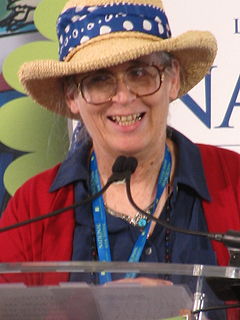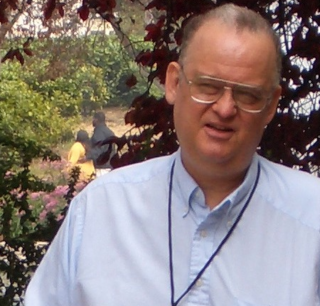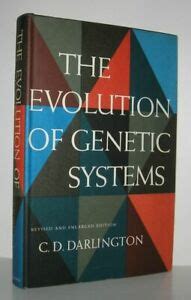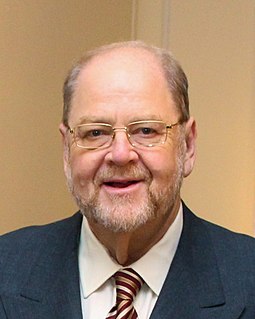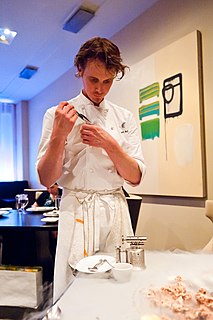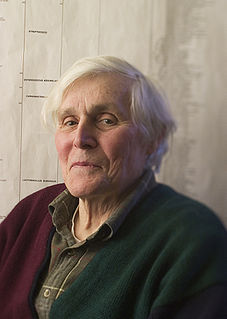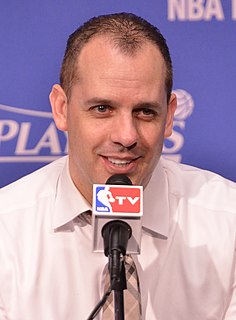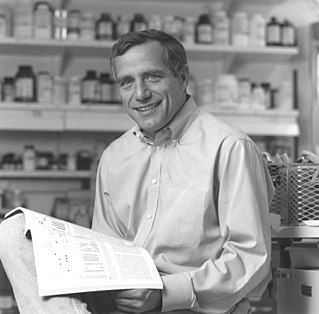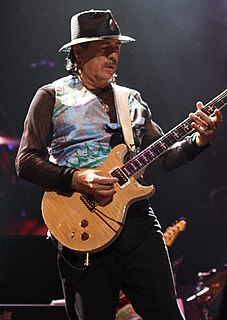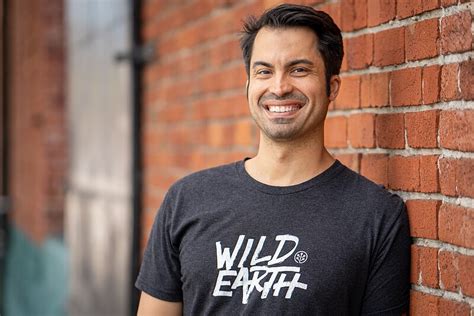Top 940 Molecular Biology Quotes & Sayings - Page 2
Explore popular Molecular Biology quotes.
Last updated on April 22, 2025.
It is possible to express the laws of thermodynamics in the form of independent principles , deduced by induction from the facts of observation and experiment, without reference to any hypothesis as to the occult molecular operations with which the sensible phenomena may be conceived to be connected; and that course will be followed in the body of the present treatise. But, in giving a brief historical sketch of the progress of thermodynamics, the progress of the hypothesis of thermic molecular motions cannot be wholly separated from that of the purely inductive theory.
There's no huge mystery. If you dig up huge amounts of carbon, huge amounts of ancient biology, hundreds of millions of year's worth of ancient biology, and flush it into the atmosphere in a matter of decades, then it stands to reason that we're going to have enormous effects, and now we can see those effects all around us.
Pulling a gun's trigger can be an appalling act. But if it is suicidal drawing fire to save someone, it has an utterly different meaning. Placing your hand on someone's arm can be an act of deep compassion or the first step of betrayal. The punch line? It's all about context, and the biology of context is vastly more complicated than the biology of the behavior itself.
If you like, there is a Guinness time. The reason for that it's fundamental. It is not that we have to keep shortening the time. It turns out all molecular and biological systems have speeds of the atoms move inside them, the fastest possible speeds are determined by their molecular vibrations and this speeds is about a kilometre per second.
I like to define biology as the history of the earth and all its life - past, present, and future. To understand biology is to understand that all life is linked to the earth from which it came; it is to understand that the stream of life, flowing out of the dim past into the uncertain future, is in reality a unified force, though composed of an infinite number and variety of separate lives.
If you search the scientific literature on evolution, and if you focus your search on the question of how molecular machines - the basis of life - developed, you find an eerie and complete silence. The complexity of life's foundation has paralyzed science's attempt to account for it; molecular machines raise an as-yet-impenetrable barrier to Darwinism's universal reach.
I took biology in high school and didn't like it at all. It was focused on memorization. ... I didn't appreciate that biology also had principles and logic ... [rather than dealing with a] messy thing called life. It just wasn't organized, and I wanted to stick with the nice pristine sciences of chemistry and physics, where everything made sense. I wish I had learned sooner that biology could be fun as well.
Molecular genetics can show off some surprising relationships like, for example, the close relationship of whales to hippopotamuses, which I think nobody ever guessed until molecular data was looked at. The closest relatives of whales are hippopotamuses, even closer than any other cloven-hoofed animals.
We are now witnessing, after the slow fermentation of fifty years, a concentration of technical power aimed at the essential determinants of heredity, development and disease. This concentration is made possible by the common function of nucleic acids as the molecular midwife of all reproductive particles. Indeed it is the nucleic acids which, in spite of their chemical obscurity, are giving to biology a unity which has so far been lacking, a chemical unity.
The major credit I think Jim and I deserve ... is for selecting the right problem and sticking to it. It's true that by blundering about we stumbled on gold, but the fact remains that we were looking for gold. Both of us had decided, quite independently of each other, that the central problem in molecular biology was the chemical structure of the gene. ... We could not see what the answer was, but we considered it so important that we were determined to think about it long and hard, from any relevant point of view.
Biology is a way of approaching the truth about the mind. In biology most people don't tackle problems at the level of complexity that psychoanalysis does. But psychoanalysis has a degree of uncertainty about it. A psychoanalyst may have some deep insights, but cannot, at the moment, run experiments to establish whether it's really the truth.
As an adult I discovered that I was a pretty good autodidact, and can teach myself all kind of things. And developed a great interest in a number of different things from how to build a street hot rod from the ground up to quantum mechanics, and those two different kinds of mechanics, and it was really in the sciences, quantum mechanics, molecular biology, I would begin looking at these things looking for ideas, but in fact you don't read it for ideas you read it for curiosity and interest in the subject.
Life, individual or collective, personal or historic, is the one entity in the universe whose substance is compact of danger, of adventure. It is, in the strict sense of the word, drama. The primary, radical meaning of life appears when it is employed in the sense not of biology, but of biography. For the very strong reason that the whole of biology is quite definitely only a chapter in certain biographies, it is what biologists do in the portion of their lives open to biography.
We have to create a sustainable environment, worldwide, and we're not doing it. The best thing we can do with the rest of this century is aggressively acquire - and put aside - the richest natural reserves that we can, and then do our best to manage the needs and desires of the 11 billion people we expect to have by the end of the century. This is where biology is headed. For that reason, the sooner we get on with mapping biodiversity on Earth, the better off biology will be - not to mention the whole subject of saving it before we carelessly throw it away.
In the Germany of the l920s, the Weimar Republic, both organismic biology and Gestalt psychology were part of a larger intellectual trend that saw itself as a protest movement against the increasing fragmentation and alienation of human nature. The entire Weimar culture was characterized by an antimechanistic outlook, a "hunger for wholeness". Organismic biology, Gestalt psychology, ecology, and, later on, general systems theory all grew out of this holistic zeitgeist.
It could be that at some earlier time, somewhere in the universe, a civilization evolved by probably some kind of Darwinian means to a very, very high level of technology- and designed a form of life that they seeded onto perhaps this planet. And I suppose it's possible that you might find evidence for that if you look at the details of biochemistry, molecular biology, you might find a signature of some sort of designer.
What we're starting to see is a quantum biology, it being applied in biology and cosmology and a host of other sciences, because it does really pertain to how we know. It really helps bring epistemology, which is how do we know what we know, out of the realm of philosophy and brings it into the realm of science.
It is ... a sign of the times-though our brothers of physics and chemistry may smile to hear me say so-that biology is now a science in which theories can be devised: theories which lead to predictions and predictions which sometimes turn out to be correct. These facts confirm me in a belief I hold most passionately-that biology is the heir of all the sciences.
We may, I believe, anticipate that the chemist of the future who is interested in the structure of proteins, nucleic acids, polysaccharides, and other complex substances with high molecular weight will come to rely upon a new structural chemistry, involving precise geometrical relationships among the atoms in the molecules and the rigorous application of the new structural principles, and that great progress will be made, through this technique, in the attack, by chemical methods, on the problems of biology and medicine.
The hypothesis of molecular vortices is defined to be that which assumes - that each atom of matter consists of a nucleus or central point enveloped by an elastic atmosphere, which is retained in its position by attractive forces, and that the elasticity due to heat arises from the centrifugal force of those atmospheres revolving or oscillating about their nuclei or central points.According to this hypothesis, quantity of heat is the vis viva of the molecular revolutions or oscillations.
The fact of evolution is the backbone of biology, and biology is thus in the peculiar position of being a science founded on an unproved theory -is it then a science or a faith? Belief in the theory of evolution is thus exactly parallel to belief in special creation - both are concepts which believers know to be true but neither, up to the present, has been capable of proof.


















